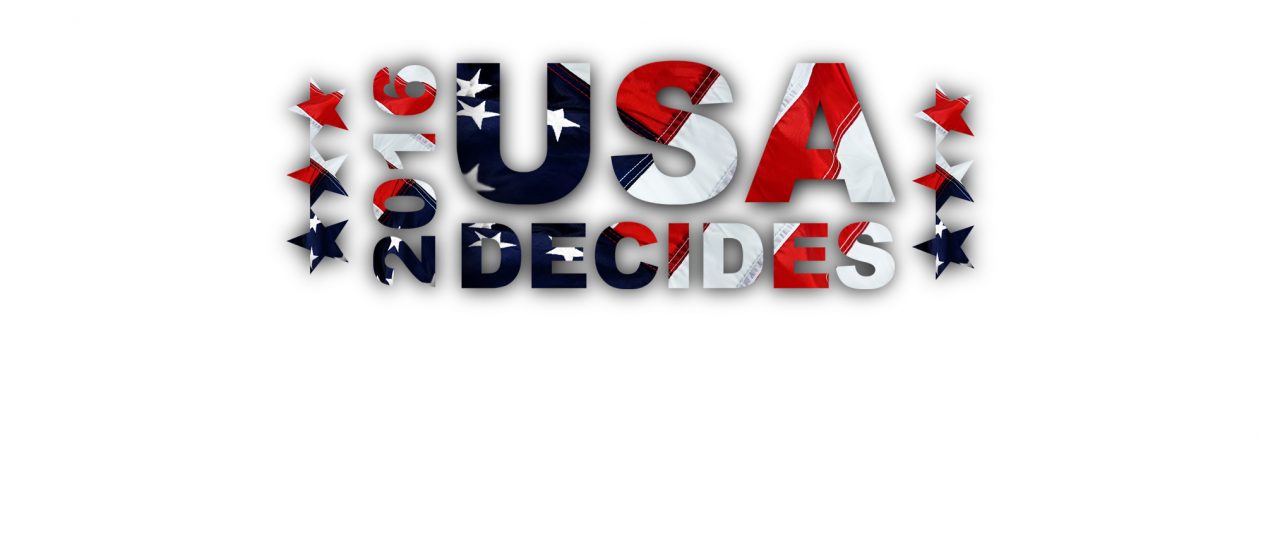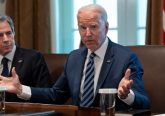It is slowly dawning on us all that Donald Trump was right when he said that the American election day ‘will be Brexit times 10’. In my experience, 4,000 miles across the Atlantic, people looked ten times more shocked when they saw Trump give a victory speech than when it became clear that their country had decided to leave the European Union.
Much has been written about Trump’s hateful rhetoric, which has offended 282 people and places on twitter alone, and the possible ramifications of his breaking long-established domestic norms. But it is the global implications of a Trump presidency that worries people across the globe. If he makes true on his campaign promises, we would see a large-scale withdrawal from institutions that the United States has helped to create in the past, and on which its power and legitimacy have rested. If you believe that this order has helped to bring about peace and stability, it rings of a ‘brave new world’ to think that Trump might withdraw from the World Trade Organization and NATO, revoke the Iran nuclear deal, NAFTA and the Paris climate change agreement. It rings of a world, in which prior international agreements do not matter anymore.
This means it is about time to turn to an analysis of what Trump means for International Relations (IR) as a discipline. While the barriers between the different schools of thought in IR are eroding,[i] two things haven’t changed: a preference for explanations that involve international rather than the domestic politics and for patterns rather than the personalities of leaders. It is possible that Trump might shake up these orientations. First, Trump’s presidency might reveal that the gradual build-up of domestic grievances can undermine some of the most established international organisations, and potentially lead to radical change. If this is the case, IR scholars would be well-advised to pay more attention to domestic politics. Second, IR has a tendency to favour explanations that involve patterns, whether these are structural or related to the ways in which actors make decisions. What Trump has demonstrated is that some actors can win by acting in unexpected ways, which were previously considered not ‘appropriate’ for gaining office, and perhaps not even ‘rational’, since they risked alienating too many voter groups. When actors behave unexpectedly and question a prior consensus, their personalities, motivations and belief systems, rather than structural patters or logics of action, might be a better indicators for whether they will act upon their campaign promises. Hence, IR might benefit from taking personalities and leadership styles more into account.
(1) Does IR need to pay more attention to the two-level game?
IR’s focus on the international is hardly surprising. After all we are studying international relations. There has been a historic preference in IR to leave the black box of the domestic state unopened. Don’t get me wrong, there are now many studies which follow in Robert Putnam’s footsteps and analyse a ‘two-level game’ of international relations, taking the preferences of both domestic and international audiences into account.[ii] However, particularly when norm change is involved, scholars have mainly looked outward. For a long time, the study of why an impressive array of international treaties of a liberal, progressive bent (human rights, environmental protection, etc.) have diffused has dominated the scholarly agenda. Even now when scholars have started to pay more attention to norm contestation, the domestic reasons for why emerging powers like China and Russia, decide to engage in this practice are underexplored. This may be due to the widespread implicit assumption that Western states prefer progressive, liberal norms while autocratic regimes prefer sovereignty (and the freedom to engage in illiberal practices). This assumption has turned out to be too simplistic.
However, one of IR’s big strength is its interdisciplinary potential. Ideas that were developed in the context of domestic affairs in different disciplines (sociology, economics, philosophy, etc.) are sometimes imported. IR scholars then ask under what conditions these new ideas, whether substantive or methodological, can also help us understand international phenomena.
If Trump and Brexit have taught us anything, then it is that looking at domestic dynamics is key. Large segments of Western societies feel unrepresented by the Western liberal consensus and yearn for different policies. Trump’s presidency will show whether this rejection of established practices and norms also translates to the international realm. If Trump’s anti-establishment agenda translates to international relations, will we see a revival of Ikenberry and Kupchan’s ‘hegemonic socialisation’?[iii] Will the U.S. now take back the liberal norms it socialised the world into in the recent past? If this happens, then there is a clear need to analyse the link between domestic and international anti-establishment resentments more carefully. Where these domestic grievances stem from and how politicians address them also have international repercussions.
Similarly, if Trump’s anti-establishment policies do not translate into the international realm, we will have to ask ourselves why this is the case. A ray of hope is that the international treaties and institutions Trump might like to withdraw from enjoy sufficient support from other states that the costs of doing so would be too great for the U.S., or they will continue to function despite withdrawal by the U.S. Let’s hope that IR’s preference for international explanations is warranted this time and that we can conclude that international norms and institutions matter more than we previously thought.
(2) Does personality matter more than IR scholars thought?
Another answer to the question of whether Trump’s foreign policy will be revisionist, however, would be that the personality of leaders matters more than IR scholars tend to acknowledge. Perhaps Trump’s belief system and leadership style are decisive for whether his domestic anti-establishment agenda translates to the international realm. Is Trump open to following expert advice? Does he only use offensive language and propose policies which many be considered illegal to get attention? Or does he actually believe in them? Many commentators regard the answers to these and other questions about his leadership and decision-making style key to evaluating what impact Trump will have domestically and internationally. (European) IR has a tendency to favour explanations that involve patterns, whether these are structural or related to the ways in which actors make decisions. One has to look long and hard to find a journal article that discusses the personalities and leadership styles of heads of state. What Trump’s election victory demonstrates is that, while these patterns hold true most of the time, some actors can be successful by acting very differently from what pundits would have expected.
One may argue that societal trends rather than his personality have enabled Trump win office in the first place. However, he may have more agency in whether and how he acts upon these societal trends than previously thought. If this is the case, a greater attention to the personalities of individual leaders, their motivations and belief systems, might be warranted.
Trump’s presidency may not only change the world as we know it, but also the discipline of IR as we know it. Of course, it just may also be the case that Trump will usher in an era of business-as-usual. In either case, it will be interesting to see, not only how the international, but also the academic community reacts to the next American president.
[i] Sil, Rudra, and Peter J. Katzenstein. “Analytic eclecticism in the study of world politics: Reconfiguring problems and mechanisms across research traditions.” Perspectives on Politics 8, no. 02 (2010): 411-431. Maliniak, Daniel, Amy Oakes, Susan Peterson, and Michael J. Tierney. “International Relations in the US Academy1.” International Studies Quarterly55, no. 2 (2011): 437-464.
[ii] Putnam, Robert D. “Diplomacy and domestic politics: the logic of two-level games.” International organization 42, no. 03 (1988): 427-460.
[iii] Ikenberry, G. John, and Charles A. Kupchan. “Socialization and hegemonic power.” International organization 44, no. 03 (1990): 283-315.








1 Comment